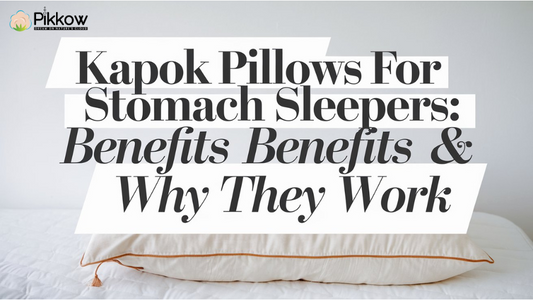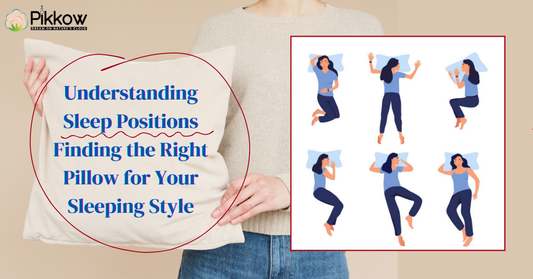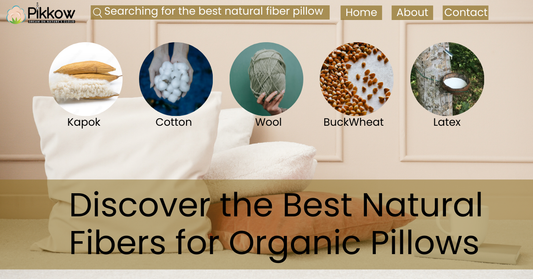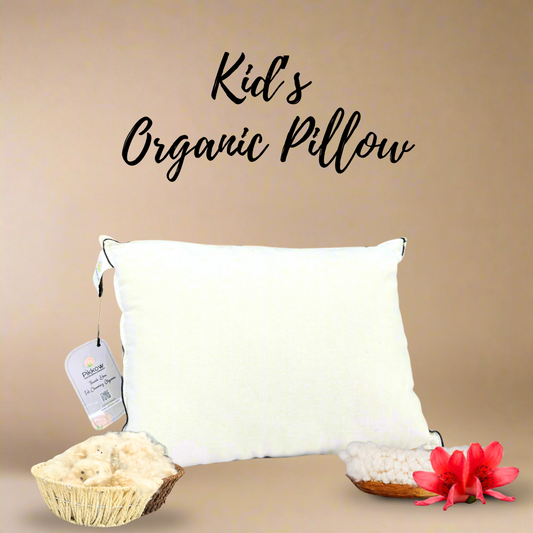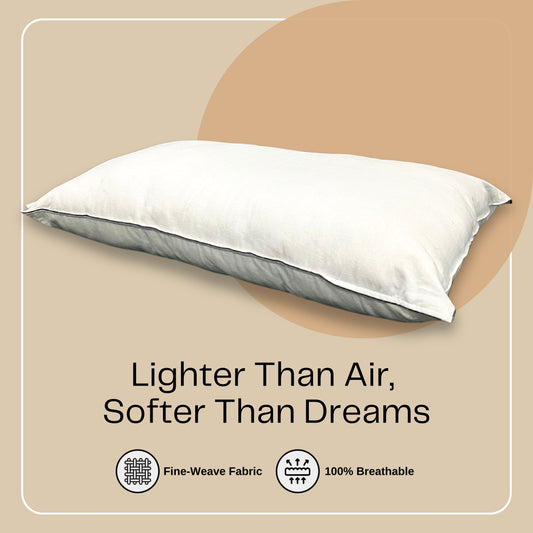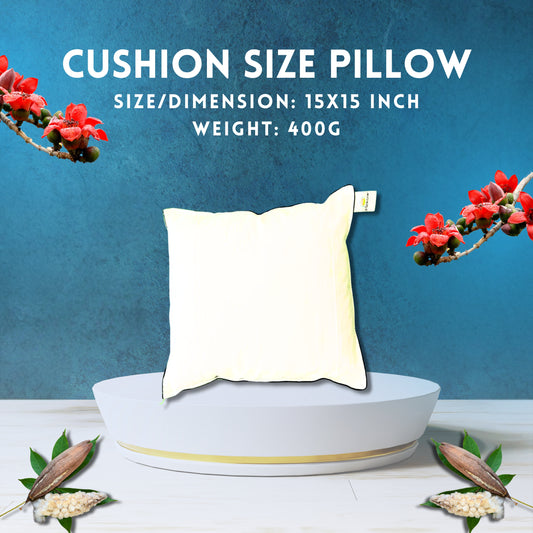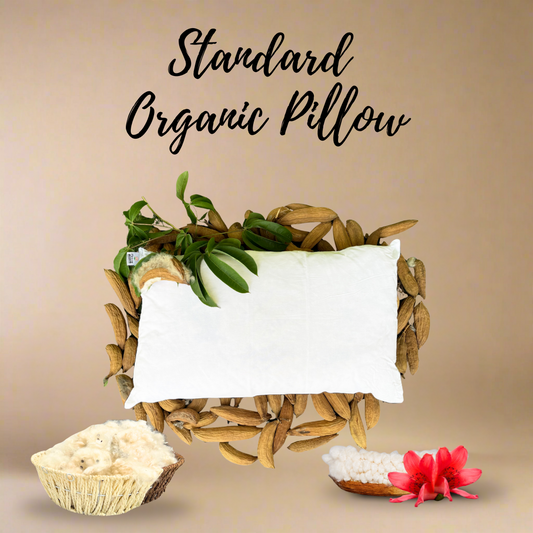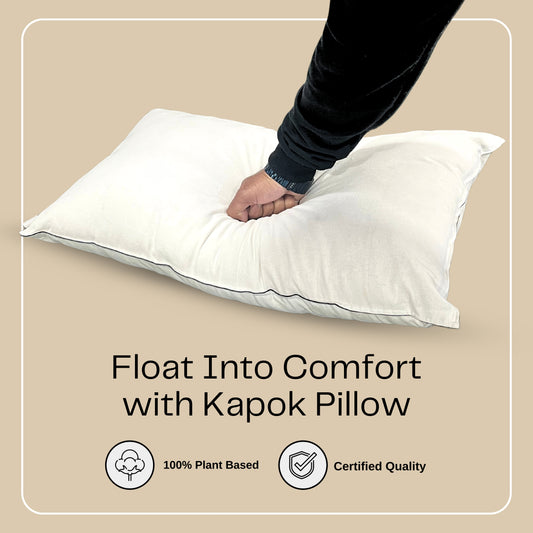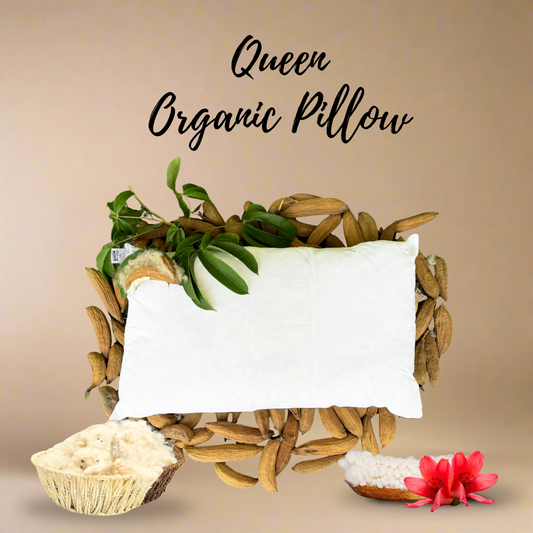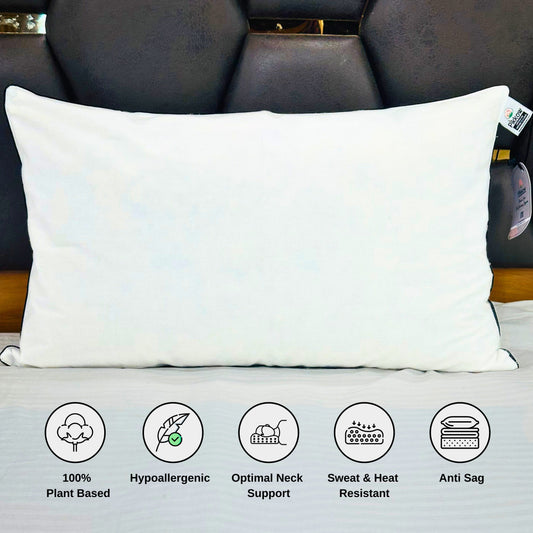When you think of pollution, you might imagine plastic bottles in the ocean or piles of discarded wrappers on the roadside. But there’s a less visible, more insidious form of pollution invading your home—microplastics in bedding.
Yes, the same plastic fibers used in synthetic fabrics and pillows can slowly break down, releasing microscopic plastic particles into the air you breathe and the sheets you sleep on. It’s a hidden problem affecting not just your comfort, but your health, your family, and even the planet.
This blog dives into where these microplastics come from, how they affect you, and most importantly—how to replace them with plastic-free bedding like organic Kapok pillows and sustainable cotton fabrics that protect your home and health.
What Are Microplastics (and How Did They Get Into Your Bed)?
Microplastics are tiny plastic particles less than 5mm in size. While they’re often associated with oceans and packaging, they’re also a byproduct of our household textiles. Every time you sleep on polyester sheets, use a memory foam pillow, or wash synthetic bedding, small plastic particles shed into the air and water.
Over time, this creates microplastics in bedding, which can:
-
Settle on surfaces and mix with dust.
-
Be inhaled during sleep.
-
Leach from synthetic fabrics when exposed to heat and moisture.
A study by the University of Plymouth found that washing synthetic fabrics releases thousands of plastic microfibers into wastewater every wash—and in homes, these fibers can circulate through the air and settle into your mattress and pillows.
If you’ve ever noticed lint or static buildup in your synthetic sheets or pillow covers, that’s often microplastics shedding right before your eyes.
The Hidden Dangers of Microplastics in Bedding
Microplastics don’t just pollute the environment—they can harm your body too. When you spend nearly one-third of your life in bed, you’re directly exposed to whatever your bedding contains.
Here’s how microplastics in bedding can affect you and your family:
-
Respiratory Issues:
Inhaled microplastics can irritate the lungs, potentially leading to chronic inflammation.
-
Skin Sensitivity and Allergies:
Synthetic fibers create friction and heat, which can cause rashes, dryness, and eczema flare-ups—especially for those with sensitive skin or kids.
-
Endocrine Disruption:
Many synthetic fabrics are treated with chemicals like phthalates and flame retardants. Over time, exposure can interfere with hormonal balance.
-
Environmental Impact:
Every time you wash synthetic bedding, microplastics enter water systems, harming aquatic life and returning to the food chain.
It’s a vicious cycle—but one that can be broken with smarter, eco-conscious home choices.
Why Your Pillow Might Be Part of the Problem
Many modern pillows—especially polyester, memory foam, or microfiber types—are major sources of microplastics in bedding. While they may seem soft and convenient, these materials are made from petrochemicals. Over time, they degrade and release microscopic plastic dust into the air around your bed.
You might not notice it, but with each toss and turn, these fibers are stirred up, circulating in your bedroom air and settling on your skin and lungs.
That’s where switching to plastic-free bedding becomes essential. By using pillows filled with natural materials like Kapok fiber, you eliminate this hidden source of pollution and replace it with breathable, non-toxic comfort.
The Natural Alternative: Kapok and Organic Bedding

If you’re looking for an organic, chemical-free alternative, Kapok fiber—used in PIKKOW pillows—is nature’s answer. Harvested sustainably from the seed pods of the Kapok tree, this fiber is soft, silky, and completely free from plastic.
Why Kapok is the Perfect Solution:
-
100% Plant-Based: No microplastics, no synthetic fibers.
-
Hypoallergenic: Naturally resists dust mites and mold.
-
Breathable: Keeps your body cool and prevents sweat buildup.
-
Eco-Friendly: Biodegradable and sustainably harvested.
-
Comfortable: Light, fluffy, and supportive for all sleep types.
When paired with an organic cotton cover, a Kapok pillow becomes a truly plastic-free bedding option—ideal for an eco-conscious home that prioritizes health and sustainability.
Inside the Sustainable Pillow Process: How PIKKOW Keeps It Pure

To truly understand why switching to organic pillows matters, it helps to know how sustainable sleep products like PIKKOW are made.
-
Harvesting the Kapok Fiber:
Kapok is collected from mature seed pods of the Kapok tree without cutting or damaging the tree—keeping forests intact.
-
Cleaning and Air-Fluffing:
The fibers are air-cleaned and naturally dried, without chemical treatment, to maintain softness and purity.
-
Hand-Filling and Stitching:
Artisans fill and stitch each pillow by hand, ensuring consistent comfort and craftsmanship—hallmarks of handcrafted bedding.
-
Organic Cotton Covers:
Each pillow is wrapped in GOTS-certified organic cotton, ensuring a plastic-free bedding experience.
-
Eco-Friendly Packaging:
PIKKOW avoids plastic packaging, opting for reusable cotton bags that align with their sustainability ethos.
The result? A pillow that’s good for you, good for your family, and good for the Earth.
How to Detox Your Bedroom from Microplastics
Eliminating microplastics in bedding doesn’t require a complete bedroom overhaul—just a few smart changes:
|
Problem |
Solution |
Why It Helps |
|
Synthetic pillows releasing microfibers |
Replace with organic Kapok pillows |
Eliminates plastic shedding |
|
Polyester sheets and covers |
Switch to organic cotton or bamboo fabrics |
Breathable and biodegradable |
|
Synthetic mattresses or toppers |
Choose natural latex or cotton mattresses |
Reduces plastic content |
|
Plastic packaging and liners |
Opt for cloth or recyclable packaging |
Reduces household plastic waste |
Simple swaps like these can transform your room into a sustainable sleep sanctuary.
The Ripple Effect: How Your Choices Help the Planet
When you choose plastic-free bedding, you’re not just improving your sleep—you’re taking a stand against pollution.
Every organic pillow you buy prevents thousands of plastic microfibers from entering waterways and ecosystems. It supports sustainable farming, fair wages for artisans, and a cleaner environment for future generations.
PIKKOW’s mission goes beyond sleep—it’s about creating an eco-conscious home culture in India, where families sleep in harmony with nature rather than synthetic substitutes.
Mid-Blog Highlight: Why PIKKOW Pillows Are Leading the Change
Among India’s growing eco-brands, PIKKOW pillows stand out for their authenticity, purity, and craftsmanship. Each pillow is:
-
Handcrafted from 100% Kapok fiber (no plastic fillers).
-
Covered in certified organic cotton fabric.
-
Designed for all ages—kids, adults, and elders alike.
-
Packaged sustainably, reflecting the brand’s green promise.
PIKKOW is redefining how Indian families sleep—combining age-old natural materials with modern comfort for a plastic-free bedroom revolution.
Conclusion: Time to Sleep Clean and Plastic-Free
Your bedroom should be your sanctuary—a place of rest, not pollution. Yet, hidden microplastics in bedding are silently impacting your air quality, your skin, and your health.
The solution is simple: switch to plastic-free bedding made from natural fibers like Kapok and organic cotton. By choosing products from brands like PIKKOW, you’re taking a conscious step toward sustainability, health, and comfort.
A good night’s sleep shouldn’t cost the planet. Choose better. Sleep cleaner. Live consciously.
FAQs
1. Why are microplastics in bedding harmful?
Microplastics from synthetic fabrics can irritate skin, affect breathing, and pollute your home’s air quality over time.
2. How can I create a plastic-free bedroom?
Opt for organic bedding like Kapok pillows, cotton sheets, and natural mattresses to eliminate synthetic materials.
3. Are Kapok pillows better for allergies?
Yes, Kapok is naturally hypoallergenic and repels dust mites, making it ideal for allergy-prone sleepers.
4. What are the best sustainable sleep products for India?
Organic Kapok pillows, bamboo sheets, and cotton duvets are the best for a sustainable sleep environment.
5. How does PIKKOW promote eco-friendly sleep?
PIKKOW uses natural Kapok fiber, organic cotton covers, and sustainable packaging to create plastic-free, handcrafted bedding.


